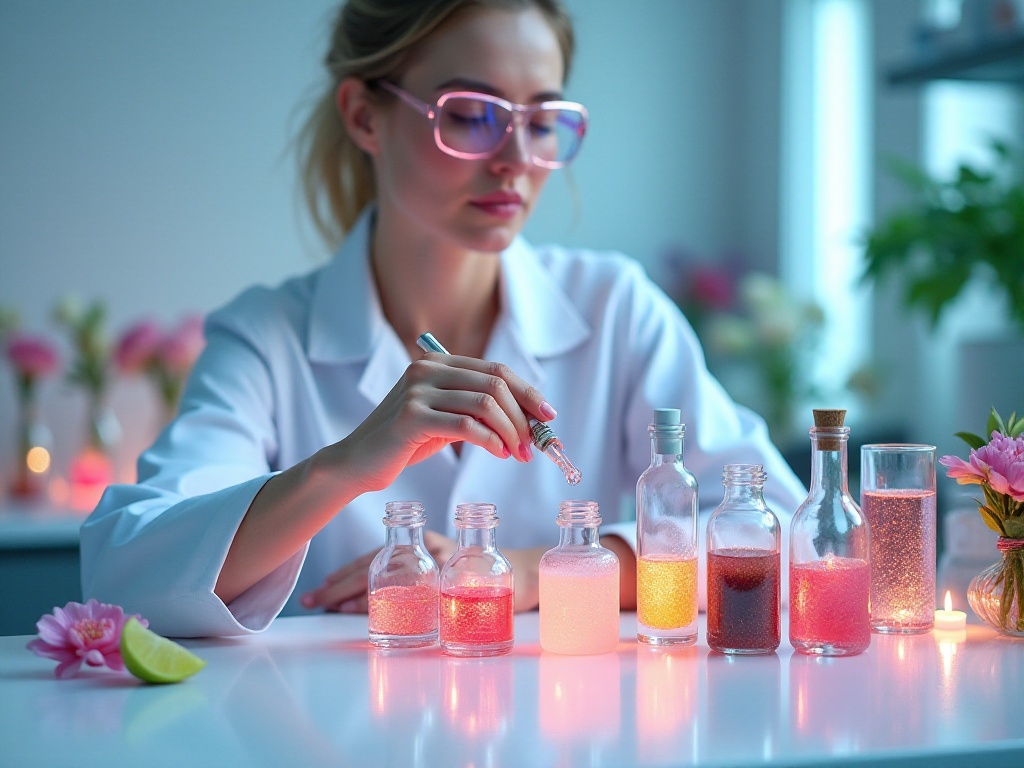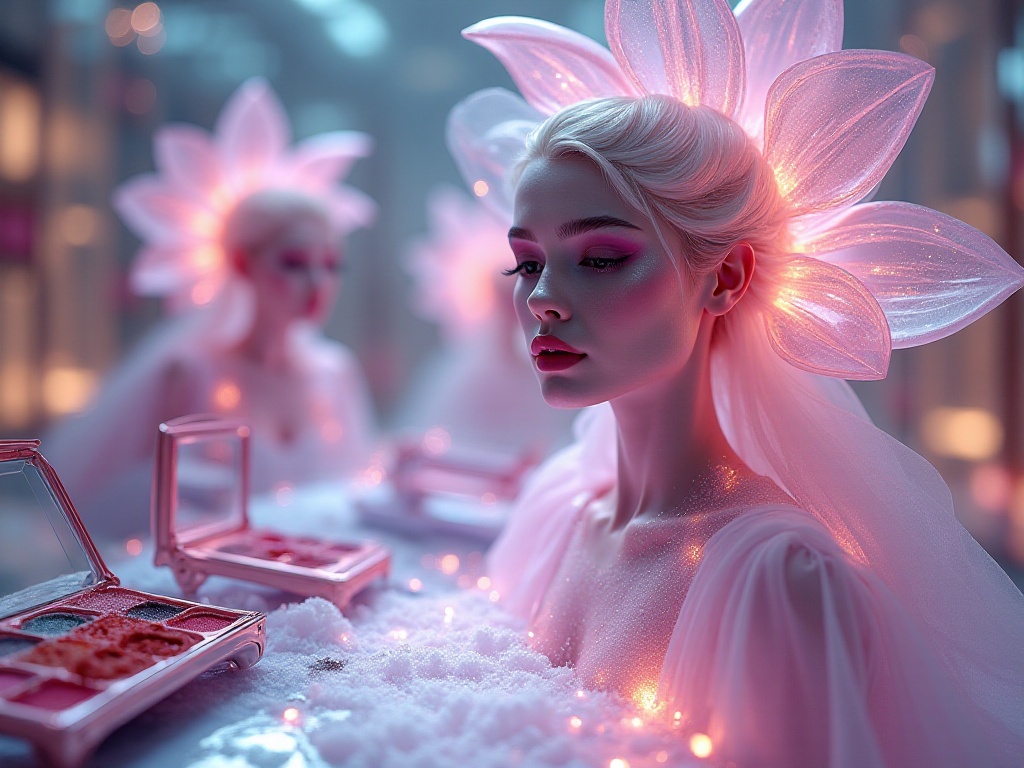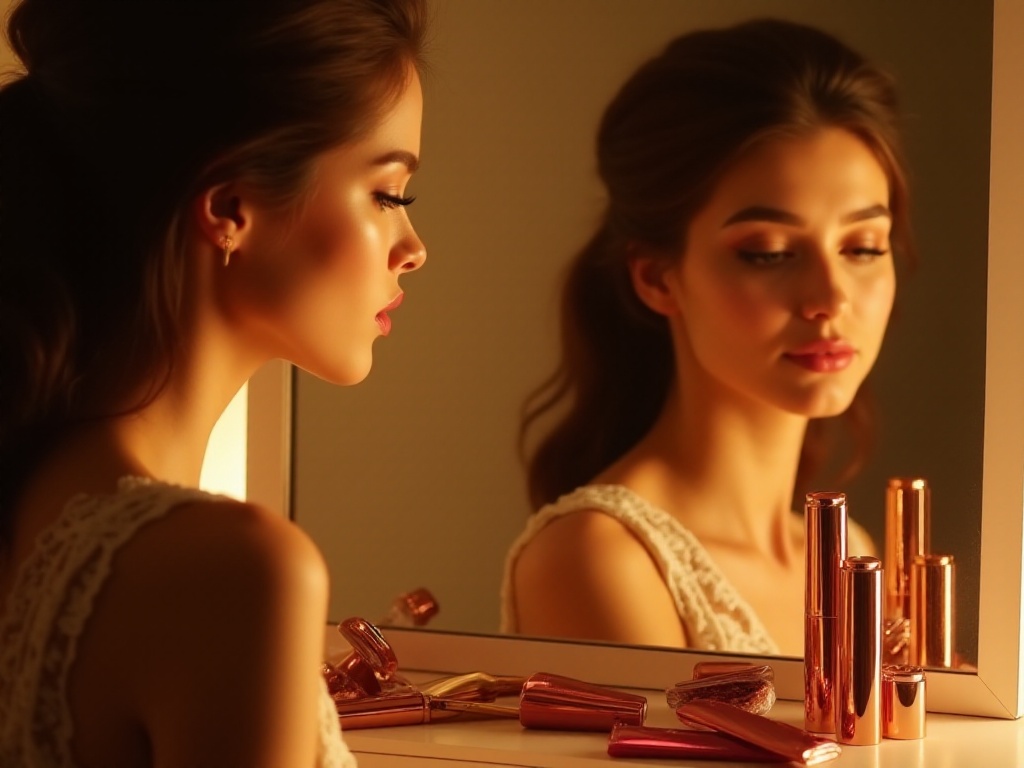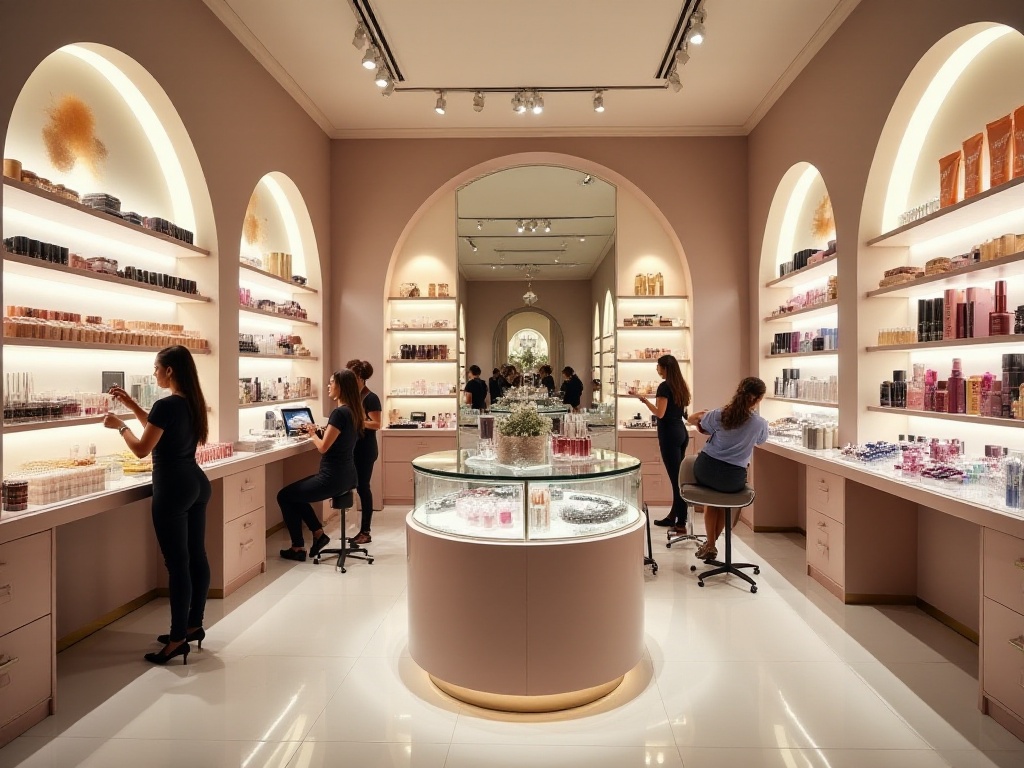Introduction
Dear beauties, today I want to talk about a fascinating topic - beauty nutrition science. Every time you look in the mirror, do you worry about your skin condition? Or have you tried various luxury skincare products but still feel the results aren't quite satisfactory? Actually, true beauty can't be achieved just by piling skincare products on your face - it needs to start with nourishment from within. Just like watering flowers, simply spraying water on the petals isn't enough; it's more important to let the roots absorb sufficient nutrients.
I know many ladies nowadays pay special attention to their appearance management, often spending thousands on luxury skincare brands. But have you wondered why some people can have glowing skin even without makeup? Why do some people's skin remain unsatisfactory even after using expensive skincare products? The answer lies in whether they've paid attention to the key element of "internal conditioning."
The Nutrition Code
When it comes to beauty nutrition, many people's first thought is "collagen supplementation." But dear, collagen is just a drop in the ocean among many nutritional components. As someone who has been in the beauty industry for many years, I want to tell you that the real beauty nutrition system is far more complex than that.
Skin is our body's largest organ, and its health directly reflects our internal nutritional status. According to the latest nutritional research data, 75% of skin tissue is made up of collagen. Vitamin C not only promotes collagen synthesis but also has powerful antioxidant effects. For example, one red pepper contains 400% of the daily recommended intake of vitamin C, which is more direct than applying vitamin C serum.
When I first started studying beauty nutrition, I was overwhelmed by various technical terms and nutritional components. But through continuous learning and practice, I discovered that beauty nutrition actually follows patterns. For instance, if you often stay up late, your skin will lack B vitamins, and eating more whole grains and nuts can help improve this. If you have acne, you might be zinc deficient, and you can supplement with oysters and lean meat.
The skincare products on the market now are diverse, with prices ranging from tens to thousands. But did you know? Many nutrients are actually more effective when absorbed through the digestive system than when applied externally. Take basic hydration for example - no matter how much hydrating essence you apply, it's not as effective as drinking eight glasses of water daily. Similarly, rather than spending big money on whitening essence, eating fruits rich in vitamin C might be more effective.

Nutrition List
The most common question I get when sharing beauty tips on social media is: "What exactly should I eat to improve my skin?" Today, I'll provide you with a super detailed beauty nutrition list.
First is the protein family. Protein is the basic building material for skin, hair, and nails, requiring a daily intake of at least 1 gram per kilogram of body weight. Quality protein sources include fish, poultry, eggs, and soy products. I personally recommend salmon the most, as it not only contains quality protein but is also rich in omega-3 fatty acids, which is particularly effective against aging.
Speaking of salmon, its unique nutritional value is worth mentioning. Besides protein and omega-3 fatty acids, salmon is also rich in vitamin D and selenium. Vitamin D helps calcium absorption, making skin more elastic; selenium is an important antioxidant that can delay aging. I personally maintain a habit of eating salmon at least twice a week, and my skin condition has indeed improved significantly.
Next is the vitamin family. Vitamin A promotes skin cell renewal; vitamin C promotes collagen synthesis; vitamin E is a potent antioxidant. When I first started paying attention to nutritional supplements, I began with just one carrot a day, and now my skin condition is much better than before.
When it comes to vitamins, many people might think about taking vitamin supplements directly. However, obtaining vitamins from natural foods is actually the healthiest way. For example, vitamin A can be found in carrots, pumpkins, and spinach; vitamin C is high in not just citrus fruits but also bell peppers and broccoli; as for vitamin E, nuts and vegetable oils are rich sources.
Minerals are also an indispensable part of beauty nutrition. Zinc promotes skin healing and cell renewal; selenium has antioxidant properties; iron helps transport oxygen, giving skin a rosy glow. In daily diet, lean meat, seafood, and nuts are all good sources of minerals.
Another often overlooked nutrient is water. Many people might think drinking water is simple, but adequate water intake is actually very important for skin health. Water helps flush out toxins from the body, maintains skin hydration, and makes skin look more plump and elastic. My suggestion is to drink at least 2000ml of water daily, preferably plain water or light tea, avoiding sugary drinks.

Practical Guide
Knowing nutritional components is important, but how do we turn nutrition science into practical beauty routines? I've summarized a super practical "internal and external" strategy.
For internal conditioning, breakfast can be a cup of collagen-rich bone broth, paired with whole grain bread and avocado. Lunch can be a protein-rich chicken breast salad, and dinner can be steamed salmon with broccoli. I follow this combination myself, and after three months, I became confident enough to go out without makeup.
Specifically, for breakfast bone broth, you can choose pork or chicken bones, best simmered for over 3 hours to fully extract collagen. Whole grain bread contains B vitamins and dietary fiber, helping intestinal nutrient absorption. Avocado contains rich unsaturated fatty acids and vitamin E, very beneficial for skin care.
The chicken breast salad for lunch is my favorite. Chicken breast is low in fat but high in protein, and when paired with various fresh vegetables, it's not only nutritionally balanced but also controls calories. I usually add romaine lettuce, cherry tomatoes, avocado, and crushed walnuts, making it both delicious and nutritious.
Choosing steamed salmon with broccoli for dinner provides the most comprehensive nutrition. Salmon is rich in omega-3 fatty acids and quality protein, while broccoli contains abundant vitamin C and dietary fiber. Such a dinner satisfies nutritional needs without being too greasy.
For external care, when choosing skincare products, pay attention to the complementary nature of nutritional components. For example, if you're supplementing vitamin C, it's best to choose essence containing vitamin C derivatives for external use, as this creates better synergy between internal and external effects.
In choosing skincare products, I suggest not blindly pursuing price, but looking at the ingredient list. Many affordable skincare products' active ingredients aren't inferior to luxury brands; the key is choosing products suitable for yourself. For instance, if you have oily skin, choose light, non-greasy products; if you have dry skin, you need products with higher moisturizing properties.
Besides basic skincare, face masks are also good supplementary care. However, note that masks aren't better just because they're more expensive or used longer. Generally, using masks 1-2 times per week is sufficient, with optimal duration being 15-20 minutes.

Precautions
There are several important points to note when practicing beauty nutrition. First, nutritional supplementation should be gradual, not rushed. I've seen many sisters buy many supplements at once, which actually backfired. Second, pay attention to nutritional balance, as supplementing a single nutrient might affect the absorption of others.
Pay special attention to supplement dosage. Although vitamins and minerals are beneficial, excessive intake can be burdensome. For example, excessive vitamin A intake might cause headaches and dry skin. Therefore, it's best to get a physical examination before taking supplements to understand your body's actual needs.
Diet should also be balanced. Don't overeat certain foods just because of their high nutritional value, nor overly restrict diet for fear of weight gain. A balanced diet is the foundation of health and the basis of beauty.
Additionally, adjusting sleep schedule is important. Even the best nutritional supplements won't be as effective without good sleep patterns. Try to maintain regular sleep schedules, ensuring 7-8 hours of sleep daily, so your body can better absorb and utilize nutrients.
Exercise is also an indispensable part of beauty care. Moderate exercise promotes blood circulation, accelerates metabolism, and helps the body better absorb nutrients. It's recommended to do at least 3 aerobic exercises weekly, 30-60 minutes each time.

Future Outlook
As technology advances, beauty nutrition science continues to progress. Now there are customized nutrition plans for different skin types, and even genetic testing for personalized beauty nutrition plans.
Genetic testing can help us understand our physical characteristics for more targeted nutritional supplementation. For instance, some people are naturally prone to certain vitamin deficiencies, which can be predicted and prevented through genetic testing.
Smart nutrition analysis is also developing rapidly. Now there are apps that record daily diet and automatically analyze nutritional intake. This helps us more intuitively understand our nutritional status and adjust diet structure timely.
The development of wearable devices also brings new possibilities to beauty nutrition science. Some smart bands can now monitor skin condition and provide nutritional advice based on data. Believe that in the near future, we'll have more advanced tools to help achieve our beauty goals.
Personalization is also a future trend. With the development of 3D printing technology, we might see nutritional supplements and even skincare products customized according to individual nutritional needs. This way, everyone can get beauty care plans most suitable for them.
However, regardless of technological advancement, a healthy lifestyle remains the foundation of beauty care. Balanced diet, adequate sleep, moderate exercise - these traditional wellness principles will never become outdated.
Finally, I want to say that beauty isn't achieved overnight, but requires long-term persistence and accumulation. I hope every beauty-loving lady can find suitable beauty care plans and shine their most beautiful light.







